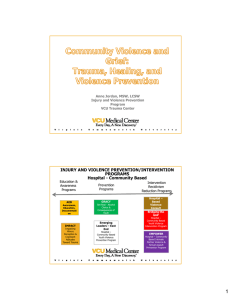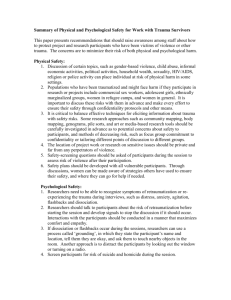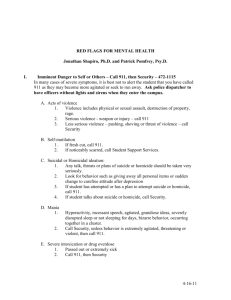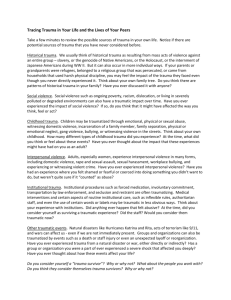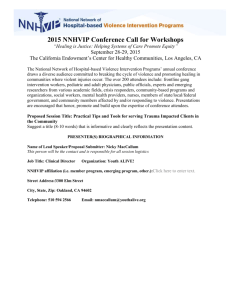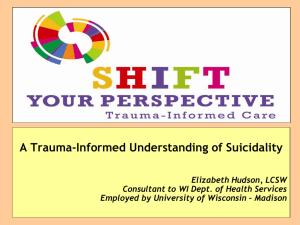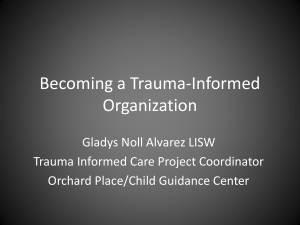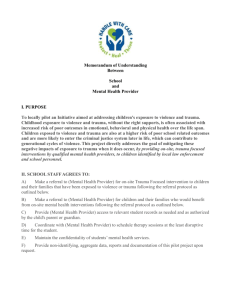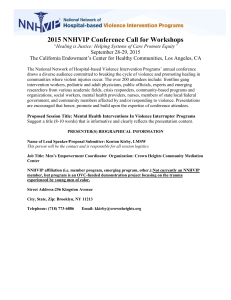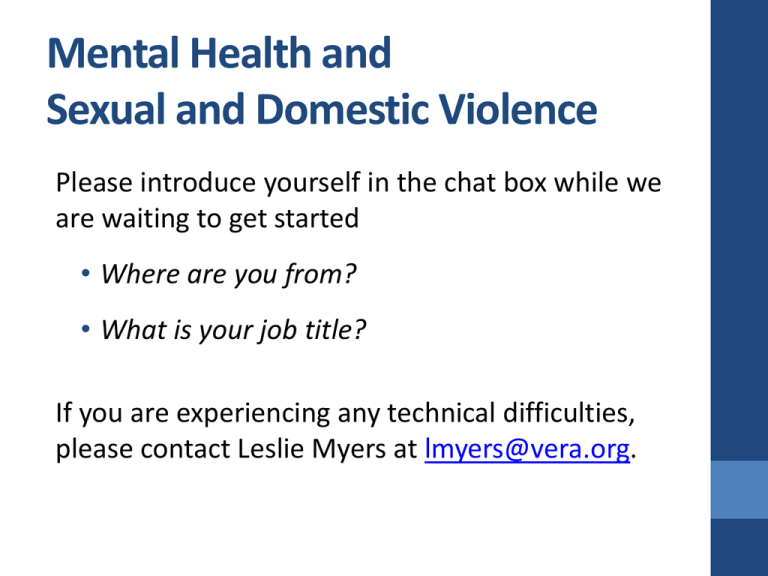
Mental Health and
Sexual and Domestic Violence
Please introduce yourself in the chat box while we
are waiting to get started
• Where are you from?
• What is your job title?
If you are experiencing any technical difficulties,
please contact Leslie Myers at lmyers@vera.org.
Introductions
Alison L. Iser, MA
Project Coordinator,
Domestic Violence
and Mental Health
Collaboration Project
Emily Puma, LICSW
Program Coordinator,
Adult Services
Polling Question # 1
What best describes your role?
CD-DV-MH Labels Video
Polling Question # 2
Whose perspective do you relate to the
most?
What Do You See?
Sunday Afternoon on the Island of La Grande Jatte
by Georges Seurat (close up and full painting)
Mental Health & DV/SA
Mentally
Healthy
Trauma
Abuser Induced
Mental Illness
DV/ SA
Abuser Claims
Survivor is MI
Brain Injury,
Substance Use
Pre-Existing
MH Concerns
MH
Concerns
Develop
Resilience
Looks
Mentally Ill
to Others
Trauma
Abuser Sabotages
Recovery
Target b/c of MH
MH
Worsens
Dr. Thomas Joiner’s Suicide Theory
Those Who Desire Suicide
Perceived
Burdensomeness
Those Who Are
Capable of Suicide
Thwarted
Belongingness
Serious Attempt or Death by Suicide
What Can We Do?
1. Address Our Own Needs
2. Create Welcoming Environments
3. Have a Trauma-Informed Approach
4. Talk about Mental Health and Trauma
5. Plan for and Support Wellness
6. Consult
7. Collaborate
Address Our Own Needs
Compassion
Satisfaction
Compassion
Fatigue
Create
Welcoming
Environments
• Clear Signs
• Sound
Machines
• Pleasant,
Organized
Space
• Privacy
• Move
furniture
• ADA at
least!
Wayfinding
Access
Noise
Comfort,
Confidence,
Control
Visual
Stimuli
Flexibility
Personal
Space
Have a Trauma-Informed Approach
Ask
• What happened to you?
• What do you need?
• How can I help you feel more comfortable?
Instead of…
• What is wrong with you?
• Do you have any psychiatric diagnoses?
• Are you on any psychiatric meds?
Polling Question # 3
When would you prefer to disclose
sensitive, stigmatized info about yourself?
Talk about Mental Health & Trauma
• Conversation, not Confession
• After accepting person into services
• Contextualize
• Quality Referrals
I want to share some
information about the
impact of trauma and
talk with you about your
experiences, so we can
offer you support…
Plan for and Support Wellness
Wellness Plan Elements
Examples
Signs that I am beginning to
1.
feel worse emotionally are…
• I sleep and eat less
• I get angry easily
When I am not feeling
2. emotionally well, I would like
my supporters to….
• Call me to check in
• Go for a walk with me
• Remind me of my
strengths
When I am not feeling
3. emotionally well, I can do
these things to help myself…
• Do grounding
• Use my comfort box
• Call a help line
Consult
• How to navigate community
mental health system
• De-escalation techniques
• What to do in a crisis
• How to help someone seek
services
Collaborate
Liaisons and Case Reviews
Reciprocal Consultation
For More Info…
Alison L. Iser
Project Coordinator,
Domestic Violence and Mental Health Collaboration Project
alison@kccadv.org
206.568.5454
www.kccadv.org/reports/mental-healthdv-reports/
This project is supported by Grant No. 2010-FW-AX-K007
awarded by the Office on Violence Against Women, U.S.
Department of Justice. The opinions, findings, conclusions, and
recommendations expressed in this webinar are those of the
authors and do not necessarily reflect the views of the
Department of Justice, Office on Violence Against Women.

